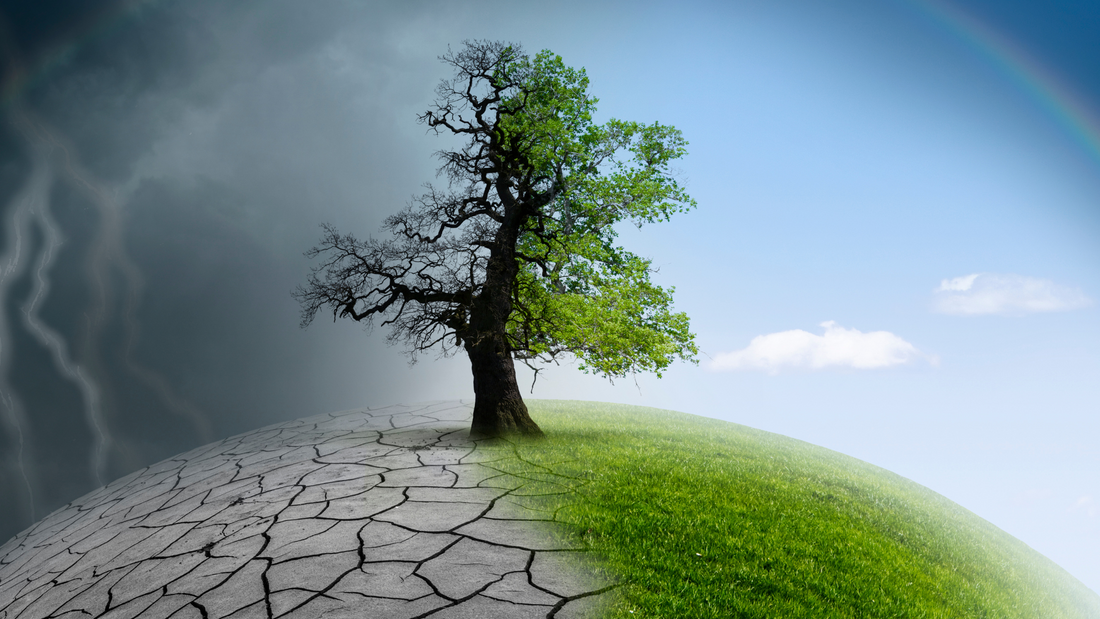
Unraveling the Complexity of Climate Change: Human Impact and Natural Cycles
Share
While I acknowledge the influence of natural cycles on climate change, I firmly believe that human activities significantly contribute to this phenomenon.
In the age of unprecedented environmental challenges, the debate rages on: are humans solely responsible for climate change, or is it also a product of natural cycles? As we navigate this complex terrain, it's crucial to understand the interplay between human activities and natural processes in shaping our planet's climate. Join us as we delve into the nuances of this multifaceted issue, exploring the evidence, the science, and the implications for our shared future.
Human Influence: The Dominant Force
There's no denying the significant impact of human activities on the Earth's climate. From the burning of fossil fuels to deforestation and industrial emissions, our relentless pursuit of progress has unleashed a torrent of greenhouse gases into the atmosphere. These gases, such as carbon dioxide and methane, trap heat and disrupt the delicate balance of our planet's climate system, leading to rising temperatures, extreme weather events, and other ominous consequences.
The Power of Natural Cycles: Earth's Dynamic Rhythms
While human activities undoubtedly play a central role in driving climate change, it's essential to recognize the influence of natural cycles that have shaped our planet's climate for millions of years. From solar variability and volcanic eruptions to ocean currents and orbital variations, a myriad of factors beyond our control contribute to fluctuations in temperature and weather patterns. These natural cycles operate on vast timescales, spanning centuries and millennia, and have profound implications for the climate dynamics we observe today.
The Intersection of Human and Natural Forces
In reality, the distinction between human-induced climate change and natural variability is not a clear-cut dichotomy but rather a complex interplay of forces. Human activities exacerbate and amplify existing natural processes, accelerating the pace of change and intensifying its impacts. Conversely, natural cycles can modulate and influence the trajectory of human-induced climate change, adding layers of complexity to our understanding of this intricate phenomenon.
Looking Ahead: Navigating a Sustainable Future
As we confront the existential threat of climate change, it's imperative that we heed the lessons of the past and chart a course towards a more sustainable future. Mitigating the impacts of human-induced climate change requires bold action, from reducing greenhouse gas emissions and transitioning to renewable energy sources to fostering resilience and adaptation in the face of inevitable changes. Equally important is fostering a deeper appreciation for the natural world and recognizing our interconnectedness with all living beings on this planet.
It's understandable to have a strong conviction about human responsibility for climate change, given the overwhelming scientific evidence supporting this view. However, it's essential to acknowledge the complexity of the issue and the interplay between human activities and natural cycles.
While human activities, such as burning fossil fuels and deforestation, undeniably contribute a significant portion of greenhouse gas emissions, it's challenging to assign a precise percentage of responsibility. Similarly, natural processes, including volcanic eruptions, solar variability, and ocean currents, also play a role in shaping our planet's climate.
Rather than viewing human and natural influences as mutually exclusive, it's more accurate to recognize them as interconnected components of a complex system. Human activities exacerbate and amplify existing natural processes, accelerating the pace of climate change. Conversely, natural cycles can modulate and influence the impacts of human-induced climate change.
It's crucial to focus on collective efforts to mitigate the impacts of climate change, regardless of the precise percentage of responsibility attributed to humans versus natural cycles. By taking decisive action to reduce emissions, transition to renewable energy sources, controlling population growth and protecting natural ecosystems, we can address the urgent challenge of climate change and build a more sustainable future for all.
